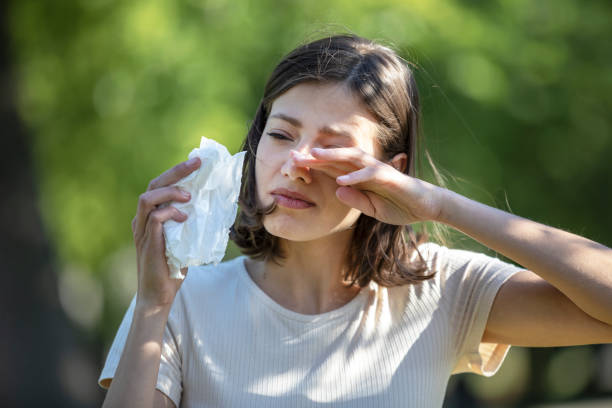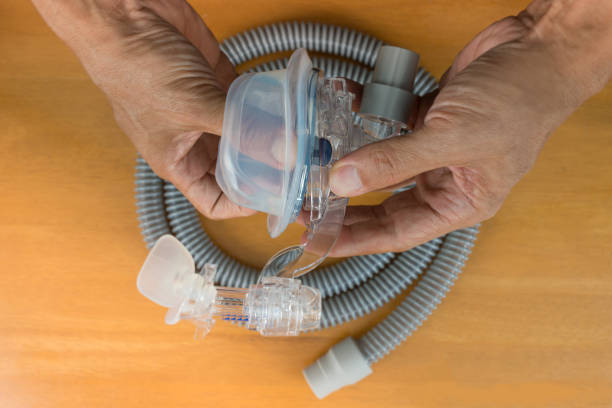CPAP and seasonal allergies present a unique challenge for individuals with sleep apnea, a condition that already disrupts restful sleep. When these two issues intersect, the complications can significantly impact one’s quality of life, especially at night. Understanding and managing both conditions effectively is crucial for achieving a better night’s sleep.
This article aims to provide insights and practical tips to help those suffering from sleep apnea and seasonal allergies navigate these challenges and improve their sleep quality.
Understanding Sleep Apnea And Seasonal Allergies

Sleep apnea, a significant sleep disorder, affects millions globally and often intersects with other conditions like CPAP and seasonal allergies. It’s characterized by repeated interruptions in breathing during sleep. The most common type, obstructive sleep apnea, occurs when the muscles in the throat fail to keep the airway open, despite efforts to breathe. This leads to snoring, restless nights, and, importantly, reduced oxygen intake.
The complexity of managing sleep apnea can increase for those also dealing with seasonal allergies, making an integrated approach to treatment essential.
Seasonal allergies, also known as allergic rhinitis, add another layer of complexity to this condition. They are triggered by allergens like pollen, dust mites, and pet dander, leading to symptoms such as nasal congestion, runny nose, and sneezing.
When someone with sleep apnea also suffers from seasonal allergies, the nasal passages become swollen and congested, making it even harder to breathe during sleep. This interplay between seasonal allergies and CPAP usage can intensify sleep apnea symptoms.
Furthermore, CPAP therapy and allergies often intersect in the management of sleep apnea. Continuous Positive Airway Pressure (CPAP) therapy, the most common treatment for sleep apnea, involves using a machine that supplies a steady stream of air through a nasal mask to keep the airway open.
Challenges Of Using CPAP With Seasonal Allergies
Combining CPAP therapy with the management of seasonal allergies introduces specific challenges that can affect the comfort and effectiveness of sleep apnea treatment. These challenges are unique to individuals who experience heightened allergic symptoms, such as nasal congestion and irritation, which can directly impact their CPAP therapy experience.
1. Increased Nasal Congestion
Seasonal allergies often lead to swollen nasal passages and congestion. This can make breathing through a CPAP mask more difficult, as the airflow may not be as effective in keeping the airways open. The sensation of increased pressure and discomfort can discourage consistent use of the CPAP machine.
2. Allergen Exposure Through CPAP
The airflow from CPAP machines can circulate bedroom allergens, such as dust mites and pet dander. This can aggravate allergic reactions, leading to a cycle of worsening symptoms and disrupted sleep.
3. Adherence to CPAP Therapy
The discomfort caused by the combination of CPAP use and allergy symptoms can lead to decreased adherence to CPAP therapy. Consistent use is crucial for effectively managing sleep apnea, and interruptions in therapy can hinder progress and overall treatment success.
4. Adjusting to Seasonal Changes
Allergy symptoms can vary in intensity with seasonal changes, requiring individuals to adapt their CPAP usage accordingly. This might involve changing CPAP settings, switching mask types, or increasing the frequency of equipment cleaning during high-allergy seasons.
Tips For Managing Seasonal Allergies While Using CPAP
Navigating CPAP and seasonal allergies simultaneously requires a proactive approach to minimize discomfort and ensure effective sleep apnea treatment.
Here are some tips for CPAP and allergies management:
Reducing Allergen Exposure In The Bedroom
- Keep windows closed during high pollen seasons to prevent allergens like pollen and pet dander from entering the bedroom.
- Use air purifiers with HEPA filters to capture airborne allergens.
- Regularly wash bedding in hot water and consider allergen-proof mattress and pillow covers to reduce exposure to dust mites.
- If pet dander is a concern, limit pets’ access to the bedroom.
Managing Nasal Congestion And Allergic Reactions
- Over-the-counter antihistamines or nasal sprays can help control allergy symptoms. Consult a healthcare provider for the best options.
- Consider using a saline nasal spray or a nasal rinse before bedtime to clear nasal passages.
- If nasal congestion is severe, a heated humidifier attached to the CPAP machine may provide relief.
Routine Cleaning And Maintenance Of CPAP Equipment

- Regularly clean and replace CPAP filters to ensure they are not clogged with dust or allergens.
- Clean the CPAP mask, tubing, and humidifier chamber with mild soap and warm water regularly to prevent allergen buildup.
- Check for any signs of wear and tear on the CPAP equipment, as damaged parts can compromise the therapy and may harbor allergens.
Additional Treatments And Considerations
While CPAP therapy remains a primary treatment for sleep apnea, there are additional options and considerations that can complement its effectiveness, especially for those managing CPAP and allergies. Exploring these options can provide a more holistic approach to treatment.
Alternative Sleep Apnea Treatments
- Oral appliances, designed by dental professionals, can reposition the jaw and tongue to keep the airway open.
- Positional therapy, which involves sleeping in a way that prevents airway collapse, can be effective for some individuals.
- Surgery, in certain cases, may be considered to remove or reduce tissue that blocks the airway.
Medication For Allergy Control
- Medications like antihistamines, decongestants, and nasal corticosteroids play a pivotal role in controlling allergy symptoms.
- It’s essential to discuss with a healthcare provider how these medications interact with sleep apnea and CPAP use, as some medications can affect sleep patterns or breathing.
Lifestyle Modifications And Home Remedies
- Simple lifestyle changes, such as maintaining a healthy weight and avoiding alcohol before bedtime, can improve sleep apnea symptoms.
- For allergy sufferers, using hypoallergenic bedding and keeping indoor air clean can reduce allergy triggers.
- Home remedies like saline nasal rinses can alleviate nasal congestion, improving both allergy symptoms and the effectiveness of CPAP therapy.
By considering these additional treatments and lifestyle modifications, individuals can find a more comprehensive solution to manage sleep apnea in the context of seasonal allergies, enhancing both their sleep quality and overall well-being.
Explore Resway For CPAP Supplies Today!
Navigating the complexities of CPAP and seasonal allergies requires an informed and personalized approach. It’s essential for individuals to consult with healthcare professionals who can provide tailored advice and treatment plans. This becomes particularly important for those who rely on CPAP therapy to manage sleep apnea, as seasonal allergies can introduce new challenges that may require adjustments in their treatment strategy.
For those looking for quality CPAP supplies and accessories, our Amazon store, Resway, offers a range of options that cater to various needs. As a top online seller, Resway understands the importance of finding the right products to support effective CPAP therapy, especially for those dealing with the added complications of seasonal allergies.



